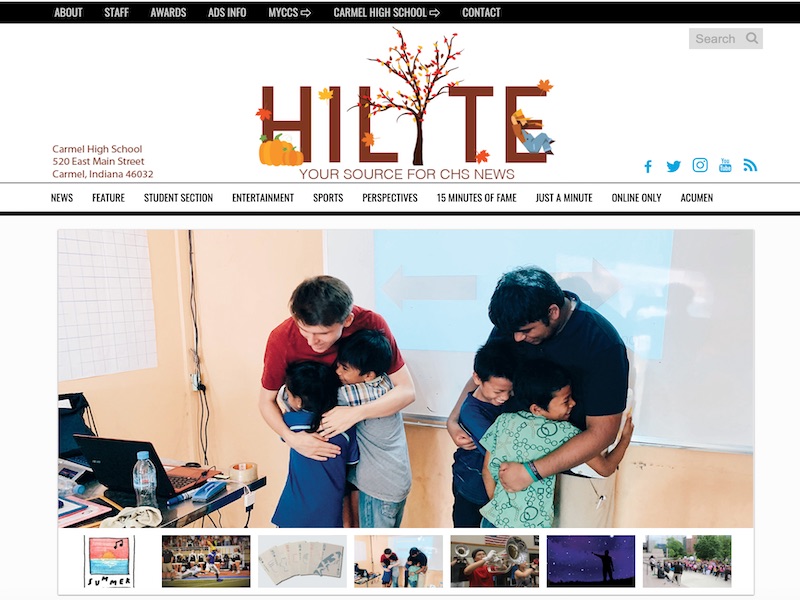News Websites Fundamentals Explained
News Websites Fundamentals Explained
Blog Article
Little Known Facts About News Websites.
Table of ContentsLittle Known Questions About News Websites.The 3-Minute Rule for News WebsitesThe Ultimate Guide To News WebsitesSome Ideas on News Websites You Need To KnowThe Buzz on News Websites
It was down in the UK and Brazil yet up some other nations, such as Greece, Bulgaria, and Poland (News Websites). This year, for the initial time, we inquired about the different manner ins which individuals stay clear of the information and found that around half of avoiders (53%) were trying to do so in a broad-brush or periodic way for instance, by turning off the radio when the news began, or by scrolling past the information in social networkse.g. scrolling previous information, transforming networks when news begins. of avoiders inspect resources much less typically. e.g. limitation to specific times of day, switching off notices, etc. of avoiders prevent some topics. e.g. topics that reduce mood or increase stress and anxiety. You stated that you attempt to actively avoid news.

I'm possibly selecting to read even more light-hearted tales than I utilized to at the moment. M, 51, UK Turning my back on information is the only method I feel I can deal often. I have to consciously make the initiative to avert for the benefit of my own psychological wellness.
Rumored Buzz on News Websites
Selective evasion of Ukraine news was highest possible in much of the countries closest to the dispute, enhancing searchings for from our extra study last year, quickly after the battle had started. Our information might not suggest an absence of interest in Ukraine from close-by nations but instead a desire to take care of time or protect mental health from the extremely actual scaries of battle.
Contrasting Finland with a politically polarised country such as the USA (see following graph) that is less impacted by the battle, we locate a very different pattern of subject evasion. In the United States, we discover that customers are most likely to prevent topics such as nationwide politics and social justice, where disputes over issues such as gender, sexuality, and race have ended up being very politicised.
American politics are pretty hazardous these days. I find in some cases that I need to separate from stories that just make me upset. F, 61, USA For some people, bitter and divisive political arguments are a reason to switch off news entirely, yet for some political upholders, evasion is typically regarding obstructing out viewpoints you don't wish to hear.

Things about News Websites
Some are seeking to make news more sites easily accessible for hard-to-reach groups, broadening the information program, appointing even more motivating or positive news, or welcoming useful or solutions journalism that provide people a feeling of hope or personal firm. In our survey this year, we asked participants regarding their interest in these various methods.
This explains why tales like Ukraine or national politics carry out well with information regulars however can at the very same time turn much less interested individuals away (News Websites). Discerning avoiders are less thinking about all kinds of information than non-avoiders but in loved one terms they do seem to be a lot more interested in positive or solutions-based information

Some Of News Websites
2023). This might be real in the minute, however with time it appears to be leaving many individuals empty and less satisfied, which might be threatening our link with and trust in the news. Throughout markets, general count on news (40%) and trust in the resources people use themselves (46%) are down by a further 2 portion points this year.
Through the rear-view mirror, the COVID-19 trust fund bump is clearly visible in the complying with chart, though the instructions of travel afterwards has actually been mixed. Sometimes (e.g. Finland), the count on rise has been maintained, while in others the upturn looks even more like a blip in a tale of continued long-lasting decline.
A few of the highest reported degrees of media criticism are located in nations with highest degree of mistrust, such as Greece, the Philippines, the USA, France, and the United Kingdom. The cheapest levels of media objection are commonly in those with higher degrees of trust, such as Finland, Norway, Denmark, and Japan.
News Websites Things To Know Before You Get This
This year we asked participants about their preferences for text, audio and video when taking in news online. On standard, we locate that the bulk still choose to read the information (57%), instead than watch (30%) or pay attention to it (13%), however more youthful individuals (under-35s) are more likely to pay attention (17%) than older groups.
Behind the averages we find considerable and unusual nation differences. In markets with a strong reading custom, such as Finland and the United Kingdom, around eight in ten still prefer to read online information, yet in India and Thailand, around 4 in ten (40%) say they favor to view news online, and in the Philippines that proportion is over fifty percent (52%).
Report this page